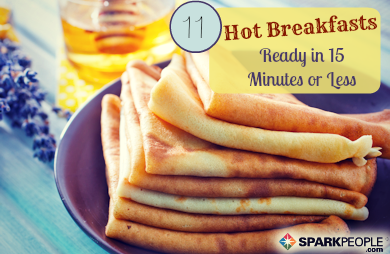|
by Marissa Beck, M.S., R.D. Imagine this. You’re home after a grueling day at work. You kick off your shoes and drop your bags. Without hesitation, you walk into the kitchen and swing open the ‘fridge like Tarzan on a vine… Last night’s leftovers taste great. You should be enjoying yourself—maybe sit down and use a fork—but instead, you’re hunched over the counter dipping cold chicken into congealed rice, smacking your lips with every bite. Before you know it, you’ve already dug into the Halloween stash. Too bad those skittles were for the kids… Mindless, robotic, munching—it happens to the best of us. You know what you should do, but sometimes you don’t listen to yourself. Luckily, there are some techniques that have been shown to curtail mindless eating before it gets scarier than the grisly trick-or-treaters. HALT before the first bite Stop yourself by say the word, “HALT!” Halt is an acronym that will help discover the reasons why you might be turning toward food. Halt stands for the following: H = Hungry Before biting into the food, ask yourself: “Am I really hungry?” It may be that you haven’t had food in over five hours and are feeling ravenous because your body needs the calories. On the other hand, reaching for food if you are not physically hungry means that you are about to eat for a different purpose. A = Anxious or Angry Stress has a significant impact upon appetite. Ask yourself if you are feeling upset, stressed or anxious about something. What are the problems or anxieties that you would prefer erasing with food? If you are anxious, the best thing to do is to try some breathing and relaxation techniques. After you have taken at least 10 minutes to de-stress, ask yourself again if you are in the mood for “x” treat. If so . . . L = Lonely Loneliness can cause people to turn toward food. Because food is pleasurable and contains properties that increase the “feel-good hormone” serotonin in the brain, many people find that food is physically comforting and oftentimes, a distraction from feeling lonely. When you feel the urge coming on, ask yourself if you are feeling alone. If so, calling a friend or a family member can help. Online social networking arenas (l have a built-in support system to help create connections with others. Walking a pet or visiting a neighbor or relative can also relieve loneliness. What else can you do? T = Tired Sometimes, people confuse tiredness for hunger. This is because sleep deprivation leads to changes in specific hormones that control appetite. According to the American College of Physicians, adequate sleep helps regulate appetite through the two hormones, leptin and ghrelin. Leptin decreases hunger, which means that you are less hungry when leptin levels are high. Ghrelin increases hunger, which means that you will feel hungry when ghrelin levels are high. With sleep deprivation, ghrelin and leptin levels are altered and they increase appetite, according to the results of a brief randomized study published in the 2004 Annals of Internal Medicine. This is good news. By getting adequate sleep (at least 7-9 hours per night), you can help better control your appetite! The bottom line is to know if you are hungry or simply tired. Try to do relaxation exercises; if you need more rest after deep breathing or a nap, then you are probably tired and should sleep! Tips & Advice What can you do instead of chowing down?
|
Popular EntriesMore From SparkPeople
|







.jpg)












